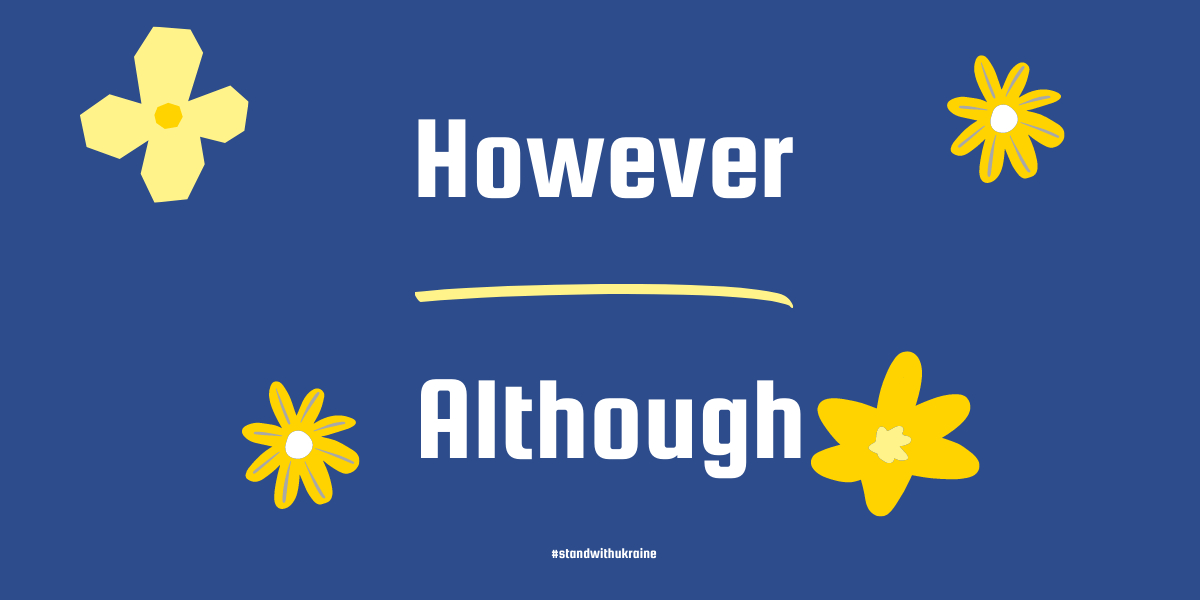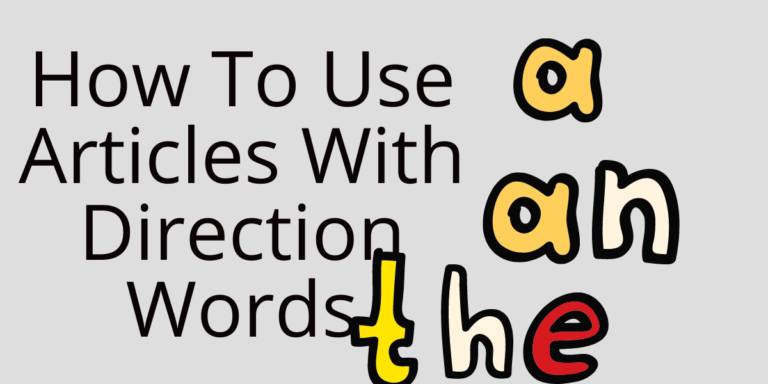What’s the Difference Between “However” and “Although”?
However vs. Although – Key differences
Firstly, the point of these two words is to indicate that there is a difference or contrast in the subjects that you are referring to. While these two words share the same intention, they are used in different ways based on sentence structure.
The key difference between however and although is: however is a conjunctive verb and although is a subordinating conjunction. So what does this mean? Let’s look at each to better understand how to use them.
Using however
“However” is a conjunction adverb which means that it is used to join main clauses or it can modify a clause. It is also used when two clauses have contradictory ideas. You can also use “but” or “nevertheless” to express contradiction. Let’s take moment to look at an example:
Clause A: John wants to play soccer tonight.
Clause B: He has a knee injury.
“However” can be used to combine these two clauses by using it as a transition within the sentence.
John wants to play soccer tonight however he has a knee injury.
Traditional grammar rules would dictate that “however” should not be used at the beginning of a sentence. This is not true for modern usage of the word and is typically accepted as normal usage. If you want to steer clear of using “however” at the beginning of the sentence, you could simply use a semicolon to connect the main clauses like the ones in our example.
There is also the option to use “however” in the middle of a sentence and should be before commas.
Suzie, however, does not like the song that James likes.
Using although
So, now that we know when to use “however”, let’s learn when we should use “although” in a sentence. “Although” is a subordinating conjunction that is used to combine two clauses together. Exceptions to a rule or an alternative would be the reason we use “although” in a sentence. This word can also be used in place of “in spite of” or “though”. Let’s look at some examples with clauses.
Clause A + Although + Clause B
She speaks Spanish well although she has not been learning it for very long.
Although + Clause A + Clause B
Although the sun was shining, it became cold and cloudy quickly.
As you can see from the examples, although is accompanied by a comma in the second sentence but not in the first. If “although” is appearing at the beginning sentence, it must be followed by a comma to be correct.
Grammatical Recap
However is a conjunctive adverb.
Although is a subordinating adverb.
Punctuation Recap
However is always followed by a comma.
Although is not always followed by a comma.
Function Recap
However allows for a transition between two ideas in a sentence.
Although adds clauses together to make a sentence.
Sentence Practice
Let’s practice our new knowledge of when to use “although” and “however”. Below, there are sentences that are missing “although” or “however”. Choose which would create a proper and correct sentence. The answers are at the bottom. Good luck!
- Marie speaks French very well, ____ her first language is English.
- although
- however
- I am very hungry, ____ I just ate lunch.
- although
- however
- We will have to move; ____ the neighborhood is good, the rent is very expensive.
- although
- however
- Amanda loves American movies, ___ she does not speak English.
- although
- however
- We will go to the beach to have lunch. ___ we will cancel our plans if it begins to rain.
- although
- however
Were you able to get them all right? What are some sentences that you can create on your own?
Answer key
- 1
- 2
- 1
- 1
- 2







